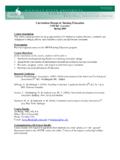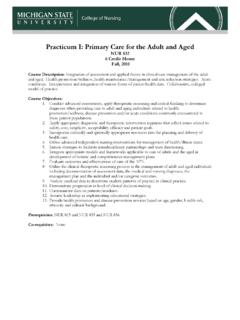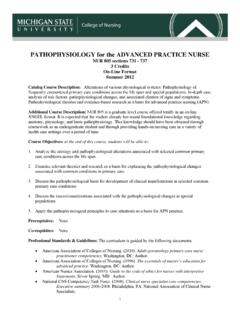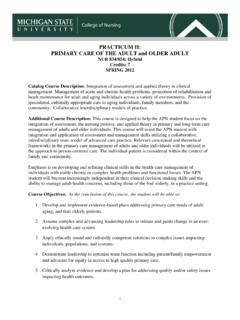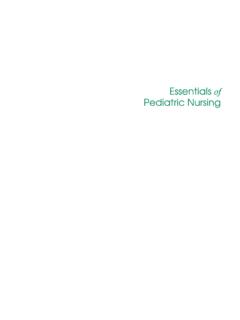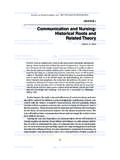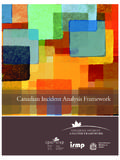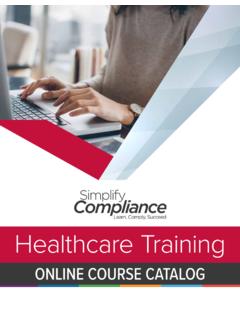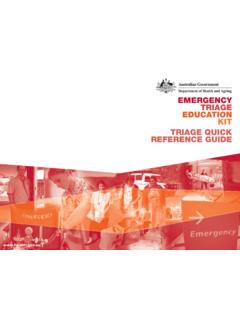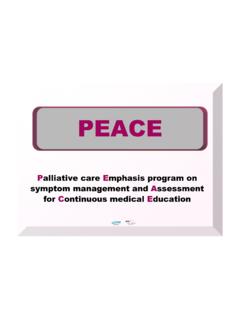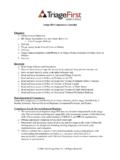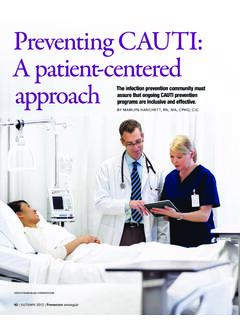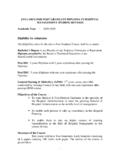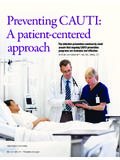Transcription of PRIMARY CARE MANAGEMENT OF THE FAMILY II ... - …
1 PRIMARY care MANAGEMENT OF THE FAMILY II NUR 823 Section 741 & 747 3 Credits Hybrid Class Fall 2012 Catalog Course Description: Principles and issues of health care MANAGEMENT for FAMILY advanced practice nurses in PRIMARY care . Health care MANAGEMENT of clients across the life span with chronic, stable and/or multiple complex problems. Integration and synthesis of relevant frameworks. Additional Course Description: The second health care MANAGEMENT course will focus on the principles and issues relevant to Advanced Practice Nurses in PRIMARY care . Emphasis will be placed on health care MANAGEMENT of patients/clients across the life span with stable chronic and/or multiple complex problems utilizing clinical relevant research and evidence-based guidelines.
2 Integration and synthesis of FAMILY frameworks/theories/models within the plan of care will be emphasized. Course Objectives: At the end of this course, students will: 1. Analyze patient data in development of diagnoses and MANAGEMENT plans for chronic conditions in PRIMARY care . 2. Evaluate health system related factors that impact advance practice. 3. Apply relevant FAMILY conceptual and theoretical frameworks to guide interventions in the MANAGEMENT of chronic conditions. 4. Analyze the impact an individual's ethnicity, culture, lifestyle, and spirituality have in development of chronic condition MANAGEMENT plans.
3 Prerequisites: NUR 815 and NUR 821 Co-requisites: None Professional Standards & Guidelines: The curriculum is guided by the following documents: 1. American Association of Colleges of Nursing. (1996). The essentials of master s education for advanced practice nursing. Washington, DC: Author. 2. American Nurses Association. (2001). Code of Ethics for Nurses with Interpretive Statements. Silver Spring, MA: 3. National Task Force on Quality Nurse Practitioner Education. (2008). Criteria for evaluation of nurse practitioner programs.
4 Washington, : Author. 2 Faculty: Kathy Dontje, PhD, FNP-BC Contact Information: 517-432-0023, Office Hours: Thursdays arranged Note: Times can be arranged to accommodate student schedules. Faculty: Kara Schrader, MSN, RN, NP-C Contact Information: Office Hours: please e-mail to make an appointment Note: Times can be arranged to accommodate student schedules. Faculty: Linda Keilman, DNP, GNP-BC Contact Information: 517-355-3365, Office Hours: please e-mail to make an appointment Note: Times can be arranged to accommodate student schedules Instruction: a.
5 Methodology: This course is taught in a Hybrid format, with the majority of the content being online. As adult learners, it is expected that students will do relevant reading and study prior to class on the topic areas identified and be prepared to participate in online/on-campus activities each week. Faculty directed readings and web links may be provided for specific content areas. It is expected that students will search the literature and suggest/share relevant findings with faculty and classmates. On-line activities include discussion board participation, quizzes and or case-studies that cover the content area for each week.
6 Students are expected to be active participants in the classroom and Angel (utilizing MSU e-mail accounts). b. Required Texts: Previously text that will be utilized American Psychological Association. (2010). Publication manual of the American Psychological Association (6th ed.). Washington, : APA. (ISBN: 978-1433805615) Ackley, , Ladwig, , (2007). Nursing diagnosis handbook: A guide to planning care . (8th ed.). Elsevier Mosby, Inc. ISBN: 978-0-323-04826-2 Dunphy, (2011). PRIMARY care : Art & Science of Advanced Practice Nursing (3rd Ed).
7 Davis Publishing. ISBN 13: 978-0-8036-2255-5 c. E-text (this will be provided to students free of charge related to a university pilot program more information available the first day of class) McPhee, S., Papdakas, M., McPhee, , and Rabow, (2013). CURRENT Medical Diagnosis and Treatment 2012, New York/McGraw-Hill Companies (ISBN 978007178184). Optional Text: Fauci, , Braunwald, E., Kasper, , Hauser, , Longe, D,L., Jameson, L., and Loscalzo, J., (2012). Harrison s Manual of Medicine (18th ed.). McGraw Hill. (ISBN: 978-0071748872) d. Required Resources, References, Supplies: ANGEL Help Line (24 hrs, 7 days/week) (24 hrs, 7 days/week) (ANGEL Help link in upper right corner) Always check with the ANGEL Help Line first!
8 Additional materials will be available on the Angel site. 3 Evaluation: a. Learning Assessments and Grading: Point Determination Will Be As Follows: Activity Points Number Totals Quiz/Assignments 10 5 50 Midterm Examination 50 1 50 Final Examination 100 1 100 Total 200 Progress will be discussed with each student individually as needed. Quizzes/Assignments: There will be 5 online assignments over the semester, each being worth 10 points. More information will be provided in Angel. These may be quizzes or case studies.
9 Examinations: (midterm and final) will reflect evidence-based questions that require application of previously learned material. The Midterm exam will be conducted on Angel. Specific information re: the exam will be posted in Angel. The Final exam will be an on-campus exam. On-Campus Lectures: Class attendance and participation is expected. A grade of must be achieved in order to pass NUR 823. b. Course Grading Scale: The MSU grading system will be utilized to report final course grades. Points will be rounded to whole numbers using the rules. Points at > will be rounded up wile those < will be rounded down to the nearest whole number.
10 There is no opportunity for extra credit in this course. % GRADE 94 100 93 - 87 86 80 (Minimum passing grade 79 75 74 70 69 65 64 60 Below 60 Class Attendance Class attendance, in both on-campus and on-line classes, is considered the responsibility of the students and is an essential and intrinsic element of the academic process. A student s absence from class does not relieve him/her from responsibility for punctual fulfillment of any course requirement such as a quiz, examination or written assignment, nor are instructors under any obligation to repeat a test, teaching or information given which was missed because of discretionary absence.)
